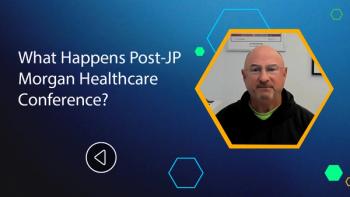
Areas That Will Benefit Most From Increased VC/Fed Funding
In this part of his Pharmaceutical Executive video interview, Jonathan Scheinberg, of the Northeast Science and Technology Center, discusses what specific areas of research and development are likely to benefit the most from this influx of of venture capital and federal funding.
How are the increased levels of venture capital and federal funding impacting the biotech industry, and what specific areas of research and development are likely to benefit the most from this influx of capital?
The thing over the past two years, when you know, the Fed started increasing rates. Capital became very dear. There was a decrease in overall liquidity in the system. And so I would argue that the venture capital after 2022 up and until a couple of quarters ago, was depleted pretty, pretty drastically, on a relative basis, compared to where it was in 2020 and 2021, however, it's normalizing to rates that were seen prior to COVID. Call it 2018/2019 estimates are forecasts are thinking that this year, 2024 in totality, will eclipse 2019 on an annualized basis for the United States, amalgamated, for all the markets. So that's actually a pretty positive thing compared to where it was.
So, the venture capital was actually pretty, pretty low over the past two years. And a lot of the companies, because their capital became so dear, really scrutinized the science of any of any company that they were thinking of funding so that velocity of deployment was reduced markedly. Now we are seeing, I think, starting from about q4 of 23 we're seeing that VC funding coming in and starting to normalize, like I said, so that funding is being targeted towards a number of different areas that are highly anticipated to grow over the next couple of years, and even longer than that are, you know, immunotherapies, antibody drug conjugates, autoimmune therapies for autoimmune disease and obviously, especially cancer research, and combining those therapies for actually, across the board, the science is actually interesting because some science that attacks cancer actually has immunotherapy actions relating to that as well. So that's where I think that the majority of the capital is going to be going to over the next couple of years and months and decades, considering how promising it is.
Look, it's a matter of time and money once we uncoated or decoded the human genome two decades ago, it really comes down to how much capital you have and how much how you allocate that capital to address all the problems that human beings have. And I think there's a huge, very exciting field of really figuring out how to address, you know, the human condition related to aging. I think it's something like 80% of all human issues, human health issues, come about from aging. And if we can tackle how to address some of those issues that that will really help out us as a species.
Newsletter
Lead with insight with the Pharmaceutical Executive newsletter, featuring strategic analysis, leadership trends, and market intelligence for biopharma decision-makers.




